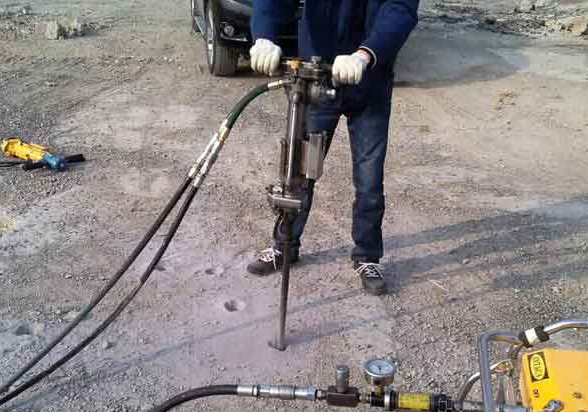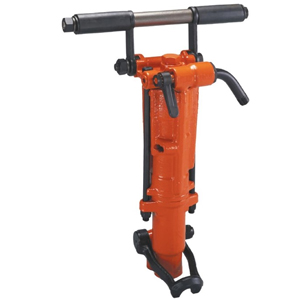Most professionals on the job site rely on hydraulic rock drills because of their versatility. They offer many benefits that other drills are unable to match, which makes them an excellent choice for a wide variety of jobs across a construction, drilling, or other work site. Although many of these tasks are relatively simple, a hydraulic rock drill can also perform some more specialized tasks that require a drill capable of performing many types of drilling.
Hydraulic rock drills are lightweight tools designed to drill blast and rock splitting holes. Drills of this type are able to provide the power needed for many drilling operations without requiring a large compressor. Various groups use hydraulic rock drills regularly to accomplish their drilling goals, such as contractors, armed forces, and utility workers who need a drill that is portable and powerful. This is why hydraulic rock drills are so dynamic and in high demand around the world.
It is hydraulic power that enables the hydraulic rock drill to perform such impressive drilling feats. Other than the small compressor that will be used for flushing, no other piece of equipment is required for successful drilling. Using a spiral hammer drill, a hydraulic rock drill can drill holes to a depth of one meter in just one drilling session. A compact drill can achieve such a depth.
Using a hydraulic rock drill has many benefits, which are best applied in spaces that would be difficult to drill otherwise. When drilling in confined spaces, the hydraulic rock drill is at its best due to its power and finesse. Operators without large compressors are capable of maneuvering the drill into tight spaces and finishing the work set out for them. As a result, it can save a tremendous amount of time when it comes to finishing a product rather than creating space for a larger drill to accomplish the same task. The benefits that a hydraulic rock drill can provide to drilling sites make it useful in many different types of jobs.







